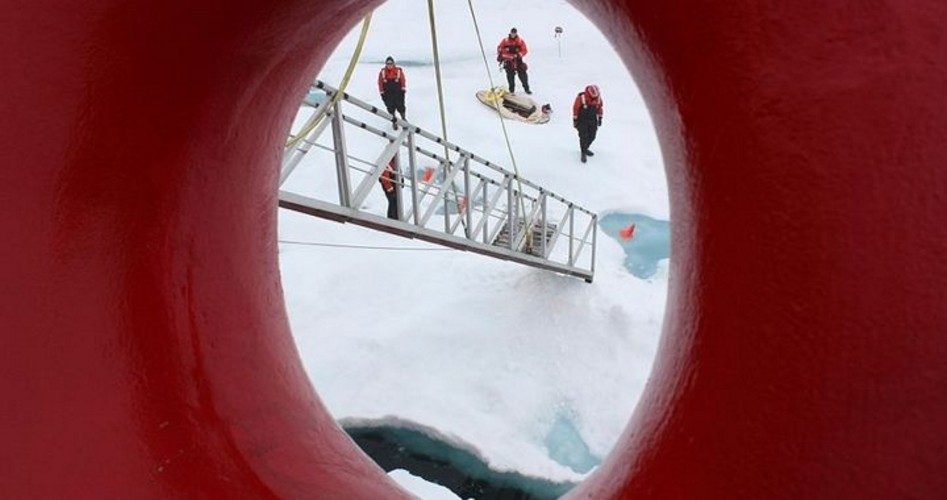
The joint U.S.-Canada statement issued by the White House on Tuesday permanently blocked 115 million acres of the Arctic Ocean — including all of the Chukchi Sea and the vast majority of the Beaufort Sea — from energy development. Said the statement:
Today, President Obama and Prime Minister Trudeau are proud to launch actions ensuring a strong, sustainable and viable Arctic economy and ecosystem … free from the future risks of offshore oil and gas activity….
Today … the United States is designating the vast majority of U.S. waters in the Chukchi and Beaufort Seas as indefinitely off limits to offshore oil and gas leasing, and Canada will designate all Arctic Canadian waters as indefinitely off limits to future offshore Arctic oil and gas leasing.
Early reactions to the statement were predictable: This is the pronouncement of a petulant child throwing spikes in front of the Trump administration’s bus. As Stephen Moore, one of Trump’s transition team members, laughingly told Lou Dobbs on Fox News Tuesday night: “Trump will repeal this on Day Two!”
Randall Luthi, president of the oil industry group National Ocean Industries Association, said “The arrogance of the decision is unfathomable, but unfortunately not surprising.”
Alaska Republican Senator Lisa Murkowski’s response was slightly more measured: “President Obama has once again treated the Arctic like a snow globe, ignoring the desires of the people who live, work, and raise a family there. I cannot wait to work with the next administration to reverse this decision.”
Erik Milito, of the American Petroleum Institute (API), was equally optimistic about overturning Obama’s pronouncement:
Blocking offshore exploration weakens our national security, destroys good-paying jobs, and could make energy less affordable for consumers.
Fortunately, there is no such thing as a permanent ban, and we look forward to working with the new administration on fulfilling the will of American voters on energy production.
A closer look at the statement, however, reveals a much more dangerous strategy being employed by the White House. It’s not an executive order, but is based instead upon a law passed in 1953 regarding continental shelf development. Called the Outer Continental Shelf Lands Act, it is an act “to provide for the jurisdictions of the United States over the submerged lands of the outer Continental Shelf, and to authorize the Secretary of the Interior to lease such lands for certain purposes.” Deep within the act is the power granted to the president to unilaterally withdraw any of those lands at any time:
The President of the United States may, from time to time, withdraw from disposition any of the unleased lands of the outer Continental Shelf.
Climate-change lawyers have scoured the act for any provision allowing for the reversal of such action and finding none are celebrating Obama’s statement as permanent and beyond the reach of the incoming president to do anything on Day Two or thereafter. A senior White House official said the Obama administration is “quite confident” that the decision could not be unwound by Trump and that efforts to do so would require congressional action followed by years of litigation.
President Bill Clinton placed a temporary ban on developing certain offshore areas, which was reversed in 2008 by President George W. Bush. But that ban was temporary and this one is permanent.
Obama can be chided for an act that appears infantile, in retaliation for Trump’s victory over Clinton last month. It can be characterized as a last-minute rebuff to the incoming administration’s determination to open presently off-limits areas to energy development. It can be construed as a final bone to be tossed to environmentalists who remain adamant in their belief that all natural resources such as oil, natural gas, and coal must remain in the ground “where they belong.” Some have concluded that this is Obama’s final attempt to secure a permanent and lasting “legacy” for his administration.
What President Obama has likely done, however, is to leave a legacy of obstruction, intending to damage America’s ability to become energy self-sufficient. That’s the legacy that is most likely to endure.
An Ivy League graduate and former investment advisor, Bob is a regular contributor to The New American magazine and blogs frequently at LightFromTheRight.com, primarily on economics and politics. He can be reached at [email protected].



